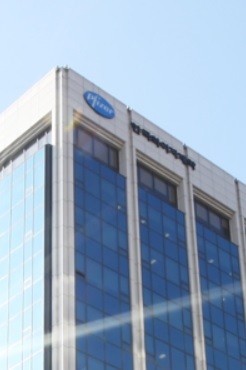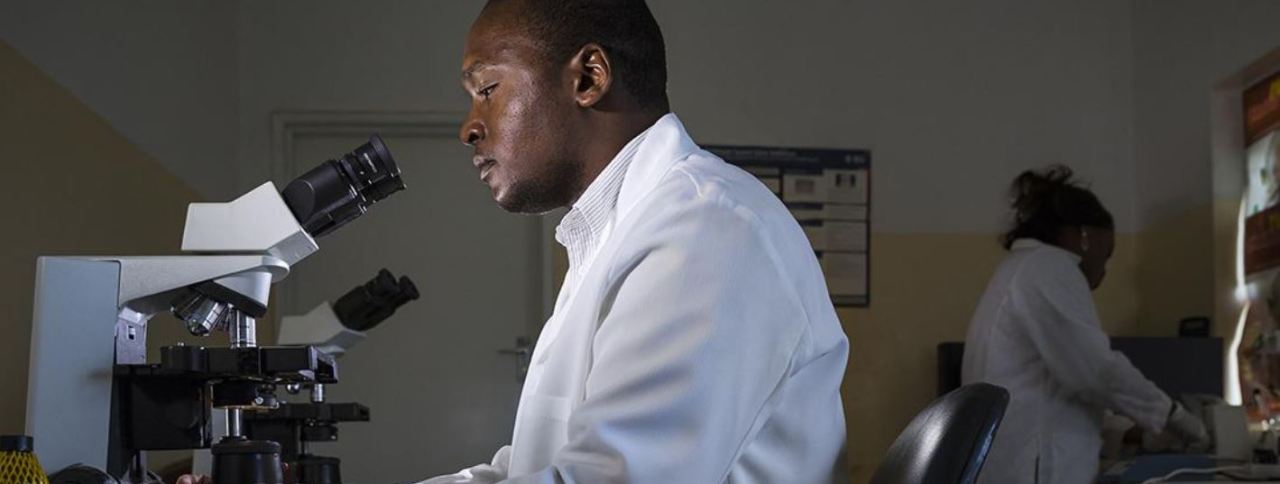Global biopharma firms back open innovation with Korean startups
By Lim Jeong-yeoPublished : May 31, 2019 - 18:08
Open innovation, a joint effort to discover and develop innovative ideas, has become a major mantra of most industries, with the bio sector firms being no exception in their search for novel drug candidates.
Attention toward biotech and novel drugs has spiked particularly in South Korea after the government announcement in May to inject 4 trillion won ($3.36 billion) in the bio-health industry.
Against such a backdrop, several global pharmaceutical firms in Korea are engaged in identifying and supporting local bio startups that have innovative items and approach.
According to the Korean Research-based Pharmaceutical Industry Association this is a win-win strategy, as open innovation with a global pharma firm can help Korean startups reduce trial and error in potentially expanding overseas.

Johnson and Johnson Korea, for instance, has since 2017 co-hosted the Seoul Innovation QuickFire Challenge with the Korea Health Industry Development Institute.
The event awards a maximum of two startups 150 million won and a two-year tenancy at the Seoul Bio Hub in Seoul’s Dongdaemun.
Currently, the winners in 2017 -- Gpower and Nu Eyne -- are tenants at the Bio Hub space. Gpower provides internet of things-based skin care hardware and software solutions that analyze skin health and give customized feedback. Nu Eyne is a medical device producer that treats dryness and pain in eyes through neuromodulation and tissue engineering. Winners also get the chance to receive scientific and business-oriented mentoring from the global pharma firm.
This year’s application period, as in the two preceding occasions, will open in November.
 Pfizer Korea also runs a competition called Pfizer Essential Health Digital Open Innovation to round out venture startups with whom it can co-develop health care solutions for a better medical service environment.
Pfizer Korea also runs a competition called Pfizer Essential Health Digital Open Innovation to round out venture startups with whom it can co-develop health care solutions for a better medical service environment.
In the latest contest, it assigned each competing team a mentor with corresponding characteristics for what the participants felt was in-depth consultation.
Winning candidates last year included the Back Keeper team, whose idea was to use IoT to help people maintain good posture and prevent back pain and Ring of Ajou, a band-type smoke sensor and application that analyzes users’ smoking habits to dissuade heavy smoking.

Novartis Korea, meanwhile, has signed a letter of intent to open the Novartis Korea Innovation Partnering Office at the Seoul Bio Hub with Korea Health Industry Development Institute. Through the office, slated to open later in June, the company seeks to identify budding bio leaders with expertise in artificial intelligence and big data for collaboration.

Bayer Korea in early May announced Plasmapp, AllLive Healthcare and InHandPlus as the three winning startups for The 3rd Grants4Apps Korea -- a simulation program to foster health care startups. It serves as the Korean version of Bayer’s worldwide digital health care startup open innovation program Grants4Apps Accelerator.
G4A Korea has a partnership with the Korea Trade-Investment Promotion Agency.

Merck, for its part, has since 2015 run its innovation center in Darmstadt, southwest Germany, to promote startups in the field of health care, life science and functional raw ingredients.
Startups across the world, including from Korea, can apply to benefit from its working space and research grant. Merck’s Global Accelerator Program opens twice a year and selects up to 10 startups annually. Selected startups attend workshops hosted by Merck with the end goal of signing a business partnership.
Merck also opened an M.Lab Collaboration Center in the Songdo district of Incheon in 2016, where its scientists closely collaborate with Korean biopharma companies such as Samsung BioLogics and Celltrion.

Sanofi-Aventis Korea offers investments and consulting programs to local startups.

Boehringer Ingelheim Korea, meanwhile, has run the Making More Health Changemaker program since 2014 to cultivate new bio firms to innovate on rigid paradigms and create positive changes. Some 50 teams annually apply to the program, and over the past five years a total of 23 teams have benefited from the firm’s mentorship for business development.
Moves to boost startups in the bio sector have been joined by Seoul Metropolitan Government as well. In 2017, the city proclaimed it would invest 30 billion won by 2023 to provide bio startups with some 150 types of research equipment, including cell incubators and germ sterilizers. The city said it plans to make the Hongneung area of Dongdaemun, where the Seoul Bio Hub is located, into a bio medical cluster.
By Lim Jeong-yeo (kaylalim@heraldcorp.com)
Attention toward biotech and novel drugs has spiked particularly in South Korea after the government announcement in May to inject 4 trillion won ($3.36 billion) in the bio-health industry.
Against such a backdrop, several global pharmaceutical firms in Korea are engaged in identifying and supporting local bio startups that have innovative items and approach.
According to the Korean Research-based Pharmaceutical Industry Association this is a win-win strategy, as open innovation with a global pharma firm can help Korean startups reduce trial and error in potentially expanding overseas.

Johnson and Johnson Korea, for instance, has since 2017 co-hosted the Seoul Innovation QuickFire Challenge with the Korea Health Industry Development Institute.
The event awards a maximum of two startups 150 million won and a two-year tenancy at the Seoul Bio Hub in Seoul’s Dongdaemun.
Currently, the winners in 2017 -- Gpower and Nu Eyne -- are tenants at the Bio Hub space. Gpower provides internet of things-based skin care hardware and software solutions that analyze skin health and give customized feedback. Nu Eyne is a medical device producer that treats dryness and pain in eyes through neuromodulation and tissue engineering. Winners also get the chance to receive scientific and business-oriented mentoring from the global pharma firm.
This year’s application period, as in the two preceding occasions, will open in November.
 Pfizer Korea also runs a competition called Pfizer Essential Health Digital Open Innovation to round out venture startups with whom it can co-develop health care solutions for a better medical service environment.
Pfizer Korea also runs a competition called Pfizer Essential Health Digital Open Innovation to round out venture startups with whom it can co-develop health care solutions for a better medical service environment.In the latest contest, it assigned each competing team a mentor with corresponding characteristics for what the participants felt was in-depth consultation.
Winning candidates last year included the Back Keeper team, whose idea was to use IoT to help people maintain good posture and prevent back pain and Ring of Ajou, a band-type smoke sensor and application that analyzes users’ smoking habits to dissuade heavy smoking.

Novartis Korea, meanwhile, has signed a letter of intent to open the Novartis Korea Innovation Partnering Office at the Seoul Bio Hub with Korea Health Industry Development Institute. Through the office, slated to open later in June, the company seeks to identify budding bio leaders with expertise in artificial intelligence and big data for collaboration.

Bayer Korea in early May announced Plasmapp, AllLive Healthcare and InHandPlus as the three winning startups for The 3rd Grants4Apps Korea -- a simulation program to foster health care startups. It serves as the Korean version of Bayer’s worldwide digital health care startup open innovation program Grants4Apps Accelerator.
G4A Korea has a partnership with the Korea Trade-Investment Promotion Agency.

Merck, for its part, has since 2015 run its innovation center in Darmstadt, southwest Germany, to promote startups in the field of health care, life science and functional raw ingredients.
Startups across the world, including from Korea, can apply to benefit from its working space and research grant. Merck’s Global Accelerator Program opens twice a year and selects up to 10 startups annually. Selected startups attend workshops hosted by Merck with the end goal of signing a business partnership.
Merck also opened an M.Lab Collaboration Center in the Songdo district of Incheon in 2016, where its scientists closely collaborate with Korean biopharma companies such as Samsung BioLogics and Celltrion.

Sanofi-Aventis Korea offers investments and consulting programs to local startups.

Boehringer Ingelheim Korea, meanwhile, has run the Making More Health Changemaker program since 2014 to cultivate new bio firms to innovate on rigid paradigms and create positive changes. Some 50 teams annually apply to the program, and over the past five years a total of 23 teams have benefited from the firm’s mentorship for business development.
Moves to boost startups in the bio sector have been joined by Seoul Metropolitan Government as well. In 2017, the city proclaimed it would invest 30 billion won by 2023 to provide bio startups with some 150 types of research equipment, including cell incubators and germ sterilizers. The city said it plans to make the Hongneung area of Dongdaemun, where the Seoul Bio Hub is located, into a bio medical cluster.
By Lim Jeong-yeo (kaylalim@heraldcorp.com)


![[Exclusive] Korean military set to ban iPhones over 'security' concerns](http://res.heraldm.com/phpwas/restmb_idxmake.php?idx=644&simg=/content/image/2024/04/23/20240423050599_0.jpg&u=20240423183955)

![[Graphic News] 77% of young Koreans still financially dependent](http://res.heraldm.com/phpwas/restmb_idxmake.php?idx=644&simg=/content/image/2024/04/22/20240422050762_0.gif&u=)



![[Pressure points] Leggings in public: Fashion statement or social faux pas?](http://res.heraldm.com/phpwas/restmb_idxmake.php?idx=644&simg=/content/image/2024/04/23/20240423050669_0.jpg&u=)









